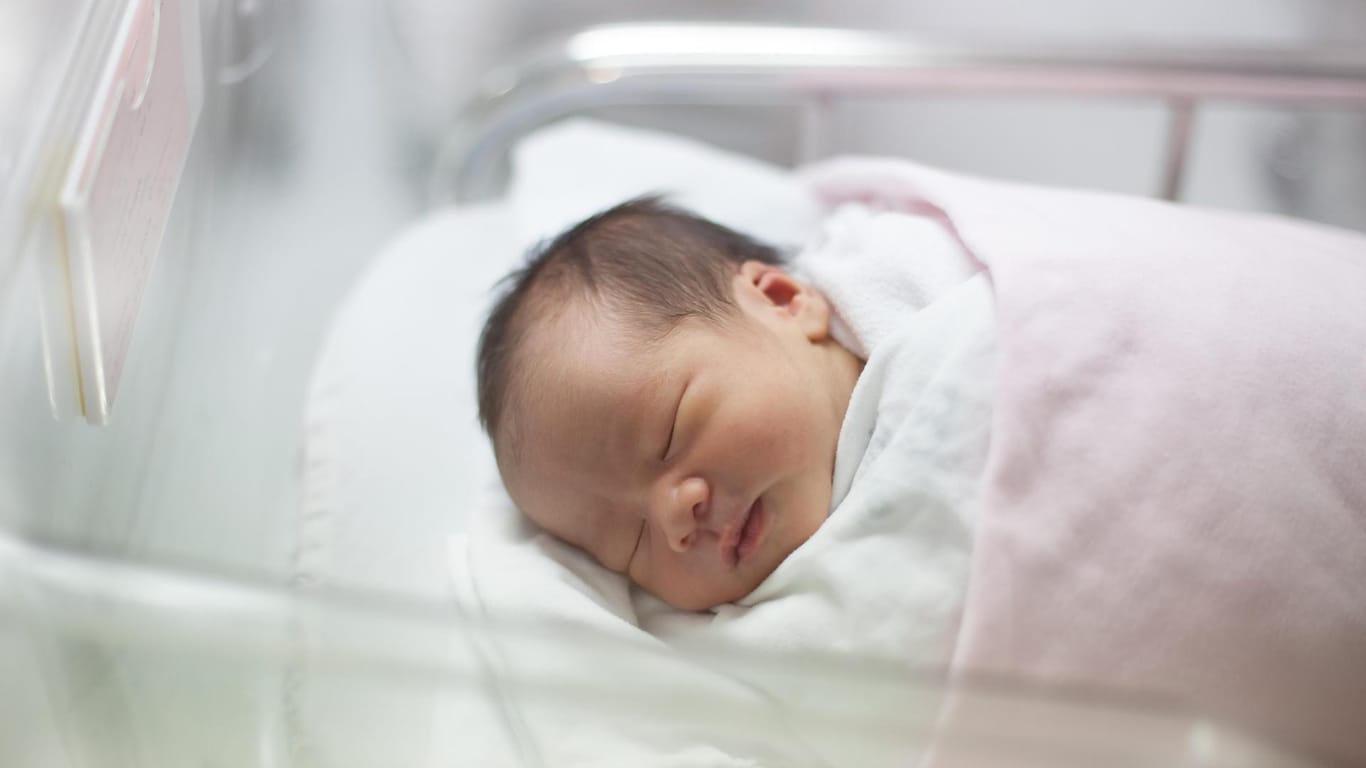During pregnancy , every woman probably hears a lot of golden wisdom, for which there is often no scientific evidence. This category also includes the theory that there is a direct connection between heartburn during pregnancy and the lush hair of a newborn. Can this be?
If you browse the online forums in which expectant and new mothers discuss pregnancy and birth , there is always discussion about the supposed connection between the amount of hair an infant has and unpleasant heartburn during pregnancy. Most women are rather skeptical about the topic.
Experience reports in online forums refute the myth
“I haven’t had any heartburn at all so far and I’m in the 35th week of pregnancy. But surprisingly, my little one now has a lot of hair. You can see it pretty well on the ultrasound picture,” reports “Filli”.
“The fact that heartburn is supposed to be a sign of babies with a lot of hair is complete nonsense,” writes “Biene”. “I had heartburn that went up the wall during both of my pregnancies and then I had two children with bald heads. That would have been too nice. I don’t think I was just the exception to the rule with my cute bald heads.”
And “Dina” comments : “Especially in the last few weeks of pregnancy, I was often tormented by rising stomach acid and then my daughter was actually born with an amazing mane of hair. I could have sent her straight to the hairdresser. Nevertheless, I think it’s all nonsense – just like the saying that excessive hair on the head of babies would tickle the mother’s stomach and therefore cause heartburn.”
US survey should bring clarity
According to a 2006 study from the USA , however, there is a connection between heartburn during pregnancy and a child’s hair growth, which is already well developed in the womb. At least that’s what the authors claim, who published their results in the specialist magazine “Birth” and which can be read on the website of the US agency “National Center for Biotechnology Information” .
The researchers’ method was very simple: the US authors worked with 64 pregnant participants from another medical study who were willing to send them a photo of their baby after birth. In the 36th week of pregnancy, women should then use a four-point scale to document whether or to what extent heartburn bothers them.
After birth, the children’s pictures were presented to an independent jury to rate their hair on a scale of one to five. The jury did not know the results of the previous questioning.
Lo and behold: 82 percent of mothers who complained of severe heartburn had babies with above-average hair growth. In contrast, around 80 percent of the babies of women who suffered little or no heartburn had no or very little hair.
From a scientific point of view, such a survey does not provide any serious, reliable data: too few women were available to achieve a representative analysis. In addition, the study authors made no attempt to biologically investigate the connection between heartburn and the child’s hair growth and thus substantiate the statistical results.
Midwife: “A connection is illogical”
For midwife Ursula Jahn-Zöhrens, who has been working as an obstetrician for three decades, the thesis definitely belongs in the “myth” category. “Heartburn during pregnancy and the amount of hair in a newborn have absolutely nothing to do with each other. That’s completely illogical. The stomach and the uterus are not connected. A child’s hair growth is determined solely by genes, and that’s typical Heartburn in pregnant women is caused by hormonal changes.
The midwife explains: These changes in turn mean that the gastric pylorus closes less tightly and stomach acid can escape more easily up into the esophagus. This effect is intensified if the child takes up a lot of space a few weeks before delivery and the gastrointestinal tract is further compressed.
“Although parents today should actually know better that such ‘wisdom’ usually has no truth, old wives’ tales like this one still persist in the 21st century,” says Jahn-Zöhrens. “That’s probably not going to change any time soon. That’s my experience in 30 years of work.”

